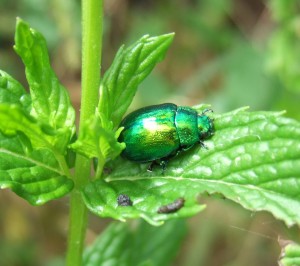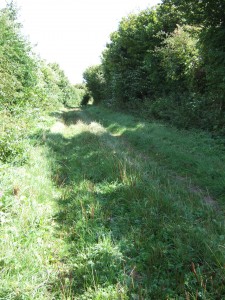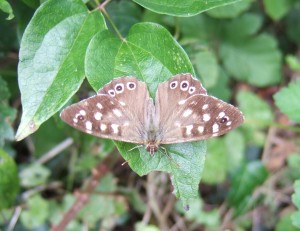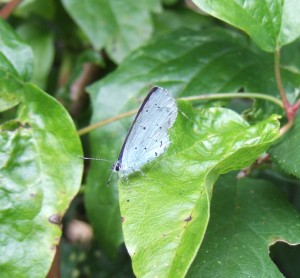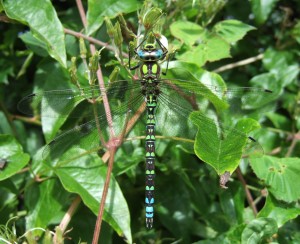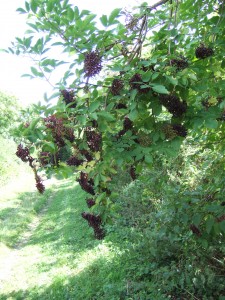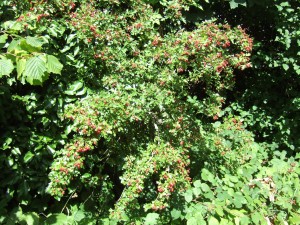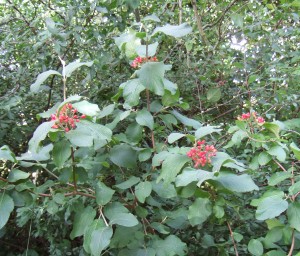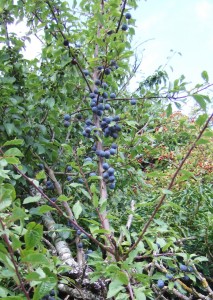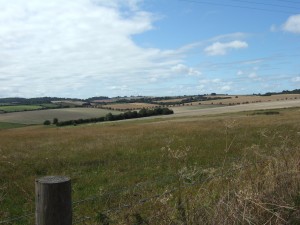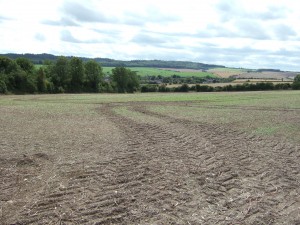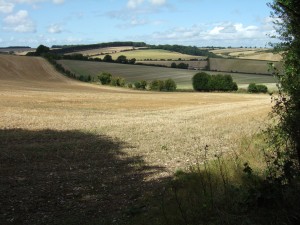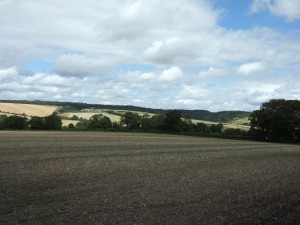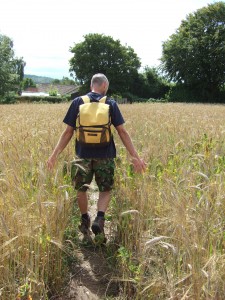Chap and I did a short (c. 2 mile) circuit around our village yesterday lunchtime. We went through the village allotments, and saw a clouded yellow butterfly (Colias croceus) in the wildflower/conservation area there, the first we have seen this year, as well as a beautiful bright green beetle on some mint (the imaginatively named mint leaf beetle).
We startled a small flock of starlings out of a dense thicket of blackberries in the conservation area. I assume they were feeding there as 1 pm seems a bit early to roost!
Out of the village there is the Ox Drove, an old drovers’ road that is a haven for butterflies and other insects. (It was here, many years ago, we saw our first and so-far only glow worm (Lampyris noctiluca) on a summer’s evening).
Here there were butterflies aplenty: we saw a brimstone, plenty of small whites, small tortoiseshells, speckled woods, peacocks, red admirals and some rather tatty holly blues.
We also saw a southern hawker dragonfly (Aeshna cyanea) to which I was able to get very close to photograph. I love their folk name of ‘Devil’s knitting needles’, even though there is nothing devilish about them (their larvae however are another matter when it comes to the stuff of nightmares …).
The berries and fruits are splendid this year. The elderberries are positively dripping off the trees, the haws are colouring up, wayfarers and guelder roses have their bright red berries, there are loads of blackberries and best of all a pretty good sloe crop—not the best there’s ever been, but enough to pick a load for sloe gin and sloe vodka without damaging the birds’ winter larder.
We walked through lovely countryside of low rolling chalk downland. Our part of south-western Wiltshire is given mostly to arable farming, often in very large fields (often made out of several smaller ones by ripping out the ancient hedgerows, sadly). Most of the crops have been harvested, but nearer to home there were still a couple of fields of wheat, barley and flax waiting to be brought in.
